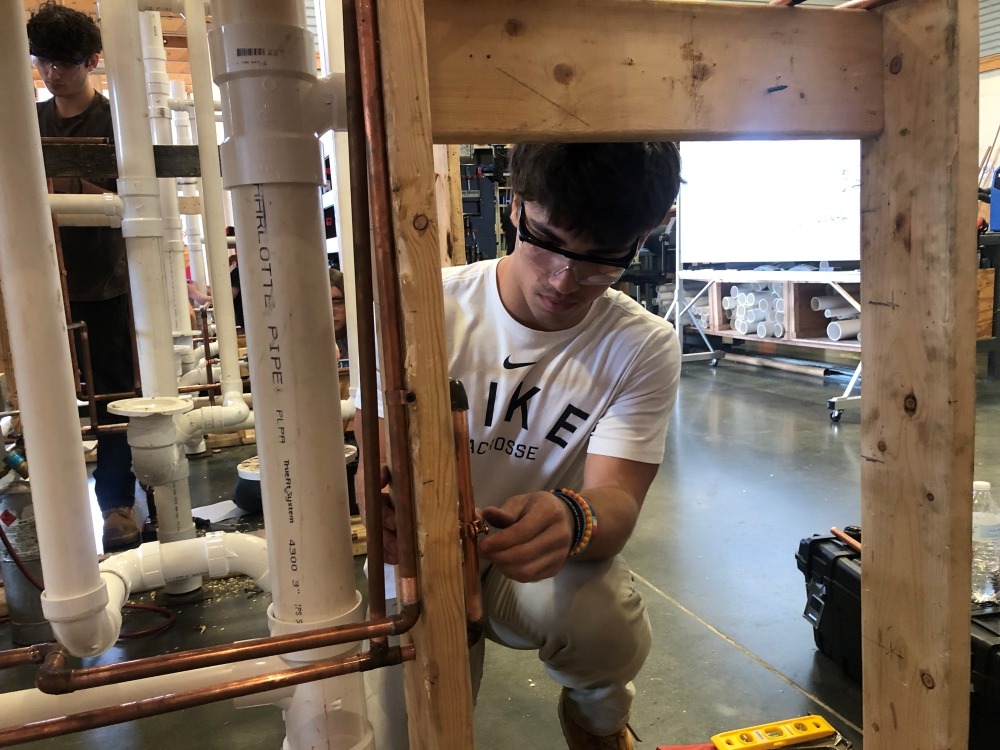Plymouth Public Schools will use two grants from the Massachusetts Clean Energy Center totaling more than $678,000 to train students in job skills for the state’s growing clean energy sector.
“It’s a very generous award for us,” said Mark Duffy, director of college, career, and technical education for Plymouth Public Schools.
The grant money from the center – a state development agency – will go to providing instructors with professional development and to get state-of-the art equipment into the hands of students, said Duffy.
It will also fund the construction of a clean energy lab at Plymouth South High School. The school now has a concrete slab outside its shops where students build sheds and practice plumbing and heating, ventilation, and air conditioning skills.
The money will allow the school to enclose the space with a pre-engineered metal building so students can work there during colder weather.
That will create enough room for Plymouth South students taking HVAC, plumbing, electrical, and carpentry classes to collaborate on projects.
“Our long-term goal is to bring students that are in those trades together to see the scope and sequence of [a] scaled down version of a clean-energy house,” said Duffy.
Plymouth South is one of five Massachusetts high schools with vocational technical programs to receive one of the grants.
It has 636 students in the career and technical education programs, Duffy said. Plymouth North has 411 students enrolled in its technical programs.
The two schools offer 17 vocational technical programs in total.
He said Plymouth South is developing specifications for the building with the Massachusetts Clean Energy Center and will request bids for the project later this fall.
He hopes that the students will be working in the new building by next fall.
Plymouth North and South are comprehensive high schools, which means they offer both academic and vocational courses. Juniors and seniors in the technical program often take vocational and academic courses on alternating days, Duffy explained.
“Students can dabble in both, which is extremely fortunate,” he said.
Some students in vocational technical programs go on to the trades. Others attend technical schools or enlist in the military, while some go on to college. Students in the programs often also better learn academic skills, such as math, through hands-on experience.
“We have a lot of students who would say, ‘I need to be on my feet’ or ‘I need to be doing something with my hands,’ and they recognize that that’s how they learn best,” Duffy said.
And unlike years ago, the programs aren’t just for boys. Girls make up close to half of the vocational technical student population in Plymouth.
“We’re making sure that no matter what your gender or how you identify that you know that there’s an opportunity for you and a career pathway for you in (a) particular vocation,” said Duffy.
The schools also work to make sure that English-language learners are aware of opportunities, as well as all students regardless of ethnicity, he said. English-language learners make up 5.6 percent of students enrolled in the town’s public school system.
Fred Thys can be reached at fred@plymouthindependent.org.

